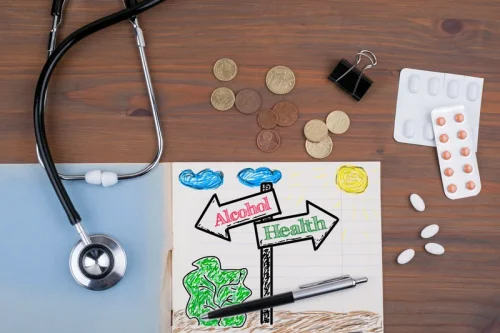
The brain is highly vulnerable to the damaging effects of alcohol, which disrupts communication between brain cells. Excessive or chronic alcohol use can lead to a steady decline in cognitive function, causing memory problems, difficulty learning new information, mood changes, and behavior changes. Alcohol is a central nervous system depressant that has immediate effects on the body, like intoxication (feeling drunk) and hangovers (unpleasant aftereffects from drinking).
Alcohol Limit Recommendations
Excessive alcohol use can harm people who drink and those around them. You and your community can take steps to Sober living house improve everyone’s health and quality of life. At this point, you may have alcohol cravings or drink to avoid the low feelings withdrawal causes rather than for the pleasurable feelings alcohol consumption may offer. If you drink every day, or almost every day, you might notice that you catch colds, flu or other illnesses more frequently than people who don’t drink. That’s because alcohol can weaken your immune system, slow healing and make your body more susceptible to infection. Your body breaks alcohol down into a chemical called acetaldehyde, which damages your DNA.
What Does Adderall Addiction and Abuse Look Like?
If your pancreas and liver don’t function properly due to pancreatitis or liver disease, you could experience low blood sugar, or hypoglycemia. Research shows that women who drink more alcohol than is recommended on a regular basis tend to https://ecosoberhouse.com/ develop liver disease, cardiomyopathy and nerve damage after fewer years than men who do the same. Heavy drinking can also increase your blood pressure and blood cholesterol levels, both of which are major risk factors for heart attacks and strokes. This information is based on the assumption that you have a normal tolerance to alcohol.
- 25.8% of people classified their recent consumption habits as binge drinking (excessive drinking in a defined amount of time).
- This is also a reason why body weight impacts how much an individual feels the short-term effects of alcohol.
- The body absorbs alcohol relatively quickly, but it takes longer to get the alcohol out of the body.
- Chronic alcohol use raises your risk for health problems, including heart disease, liver disease, cancer, and mental health disorders.
Loss of Coordination
- Alcohol increases the production of stomach acids and can lead to reflux (stomach acids backing up into the esophagus and the throat).
- Alcohol use can exacerbate mental health conditions, like anxiety and depression, or lead to their onset.
- More frequent binge drinking, though, is more likely to lead to long-term damage.
- If enough acid and alcohol build up, you get nauseated and you may throw up.
- Alcohol poisoning (overdose) can happen if you drink large amounts of alcohol quickly.
Alcohol disrupts the communication between the brain and sensory organs (e.g., eyes and ears), leading to changes in vision, hearing, and perception of the sounds and sights around you. By promoting the release of these feel-good neurotransmitters, alcohol temporarily amplifies feelings of joy and lightheartedness. To accurately reflect our sources, this article uses terms like “female,” “male,” “woman,” and “man” as the sources use them. It causes the stomach to produce extra acid, leading to stomach lining inflammation (gastritis). Working with an addiction specialist can help you determine the proper course of action toward recovery. Every state in the U.S. has a legal limit (or a point at which it is legally unsafe to operate a motor vehicle) of 0.08%.


From there, you may begin to experience both physical and mental health effects from consumption. With those who overconsume alcohol, the risks can be higher, including a more severe impact on the brain and even alcohol poisoning. Clinicians have long observed an association between excessive alcohol consumption and adverse immune-related health effects such as susceptibility to pneumonia. The short-term effects of alcohol are also impacted by other factors, including gender, weight, and age. Young people tend to binge drink or heavily consume alcohol more than those who are old. Those in their 20s, and even younger than 21, tend to drink socially.

The risk of liver cancer from alcohol use appears to be dose-dependent, meaning that your risk increases with Long term Effects of Alcohol on the Body the amount you drink. Heavy alcohol use is defined as eight or more drinks per week for women or 15 or more drinks per week for men. Others define it as binge drinking five or more days in the past month.
On the other hand, the long-term effects can lead to physical health problems and complications such as alcohol dependence and addiction. Much progress has been made in elucidating the relationship between alcohol consumption and immune function and how this interaction affects human health. Continued advances in this field face several challenges, however. Normal immune function hinges on bidirectional communication of immune cells with nonimmune cells at the local level, as well as crosstalk between the brain and the periphery. These different layers of interaction make validation of the mechanisms by which alcohol affects immune function challenging. Moreover, the wide-ranging roles of the immune system present significant challenges for designing interventions that target immune pathways without producing undesirable side effects.
Sexual function in men

Premature mortality is another large contributor to indirect costs of alcohol dependence.238 In 2004, 3.8% of global deaths were attributable to alcohol (6.3% for men and 1.1% for women). Those under 60 years old have much higher prevalence in global deaths attributable to alcohol at 5.3%. While cortisol is a stress hormone, alcoholism can lead to increased cortisol levels in the body over time.
Heavy, long-term alcohol use can lead to alcoholic liver disease, which includes inflammation of the liver and cirrhosis. Alcohol has the potential to cause so much harm to your health, but with treatment you can get sober and reverse many of the negative effects of alcohol on your body. Treatment for alcohol addiction may include medical detox, inpatient and/or outpatient rehab, and medications to support long-term recovery. Moreover, when more than 60 g of alcohol are consumed per day, the risk of cirrhosis-related death increases by 14 times in men and 22.5 times in women compared to nondrinkers. Studies have shown that consumption levels this high almost invariably place you at risk of liver disease. According to the European Association for the Study of the Liver, the risk increases when over 140 g of alcohol are consumed per week by women and more than 210 g are consumed per week by men.
What Exactly Does Alcohol Do To Your Body?
Since those effects don’t last long, you might not worry much about them, especially if you don’t drink often. If a person consumes large amounts of alcohol regularly, their tolerance can increase, and the body requires more alcohol to achieve the desired effect. Since the liver can only process the equivalent of one drink at a time, the body may remain saturated with the alcohol that has not yet left the body. It also increases the risk of blackouts, especially on an empty stomach. During this time, a person may do things that they do not remember later.

